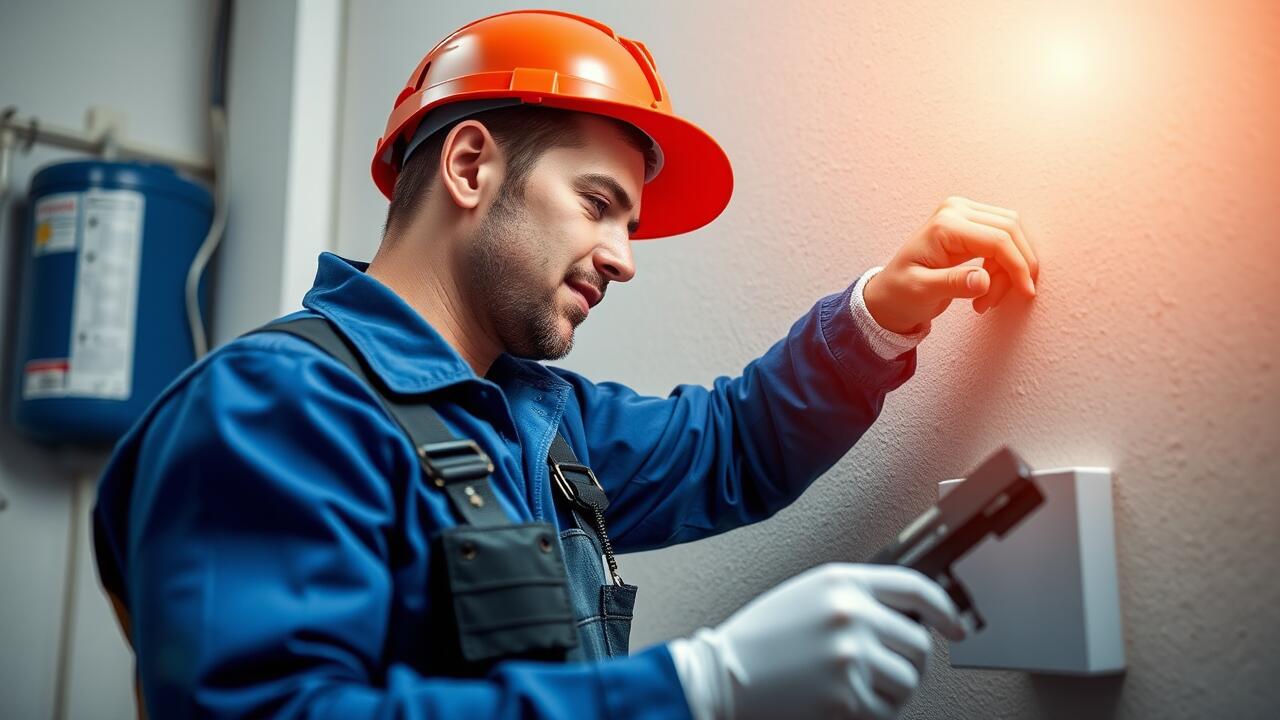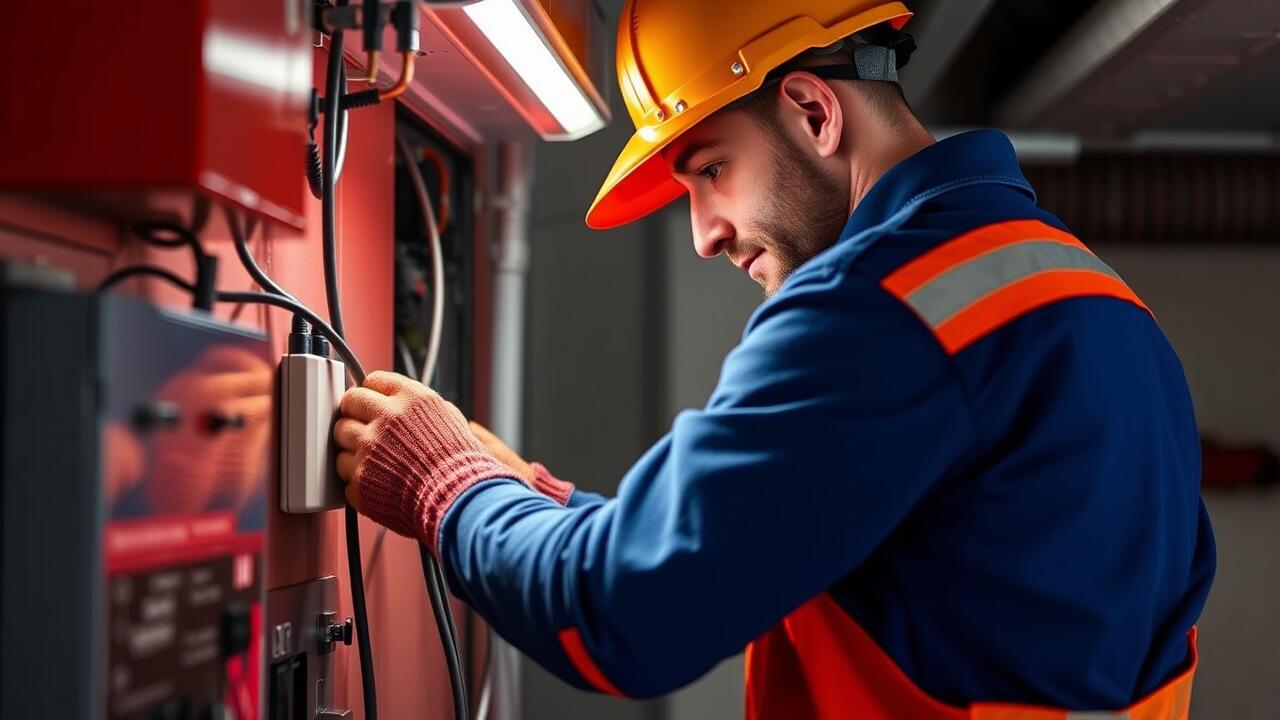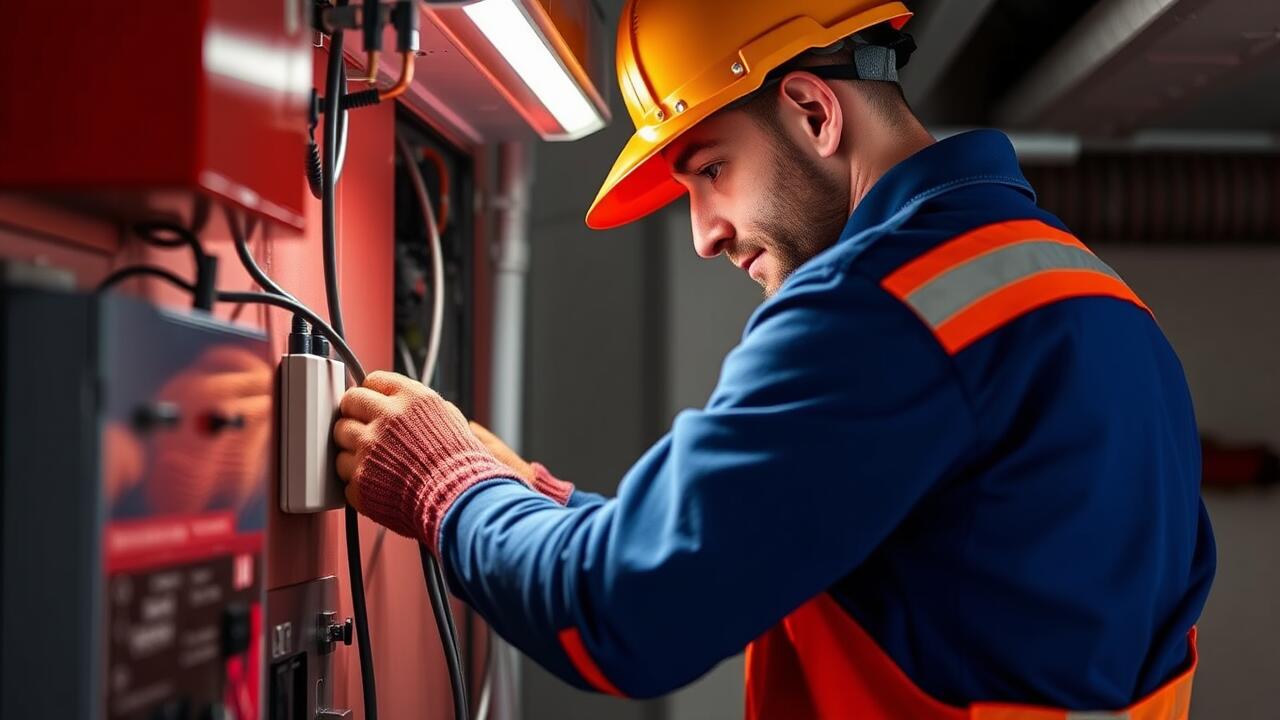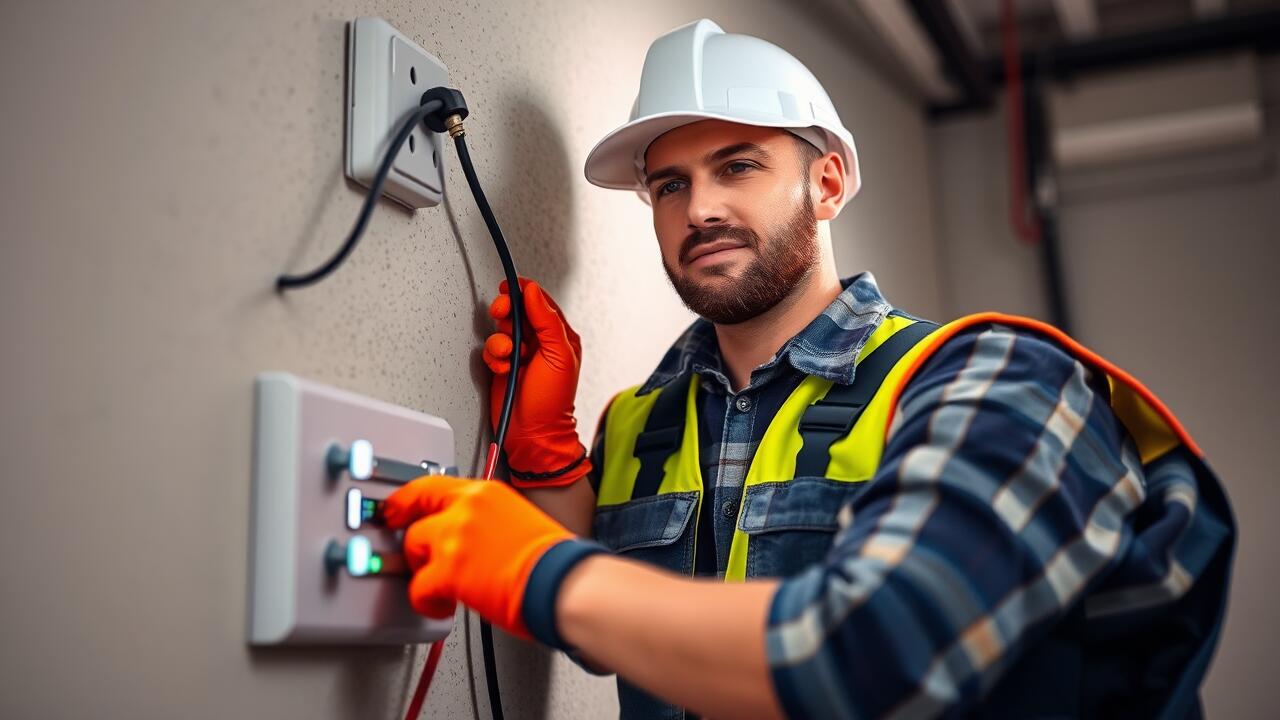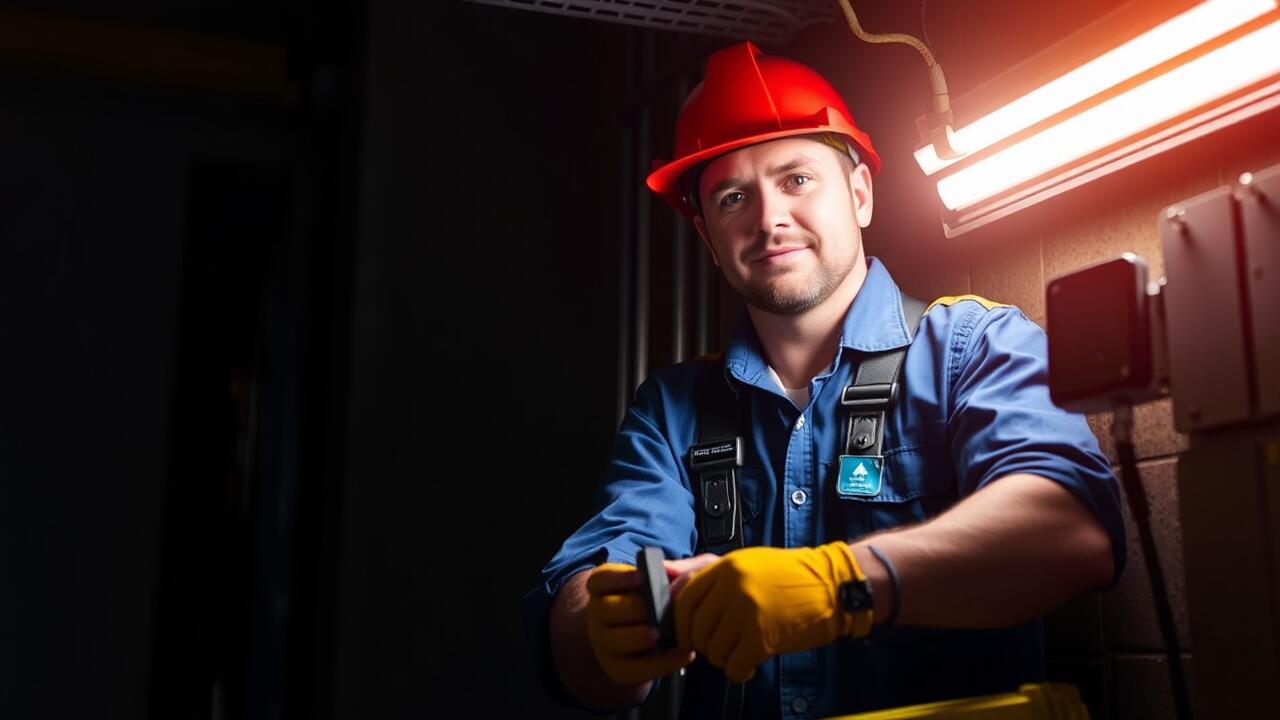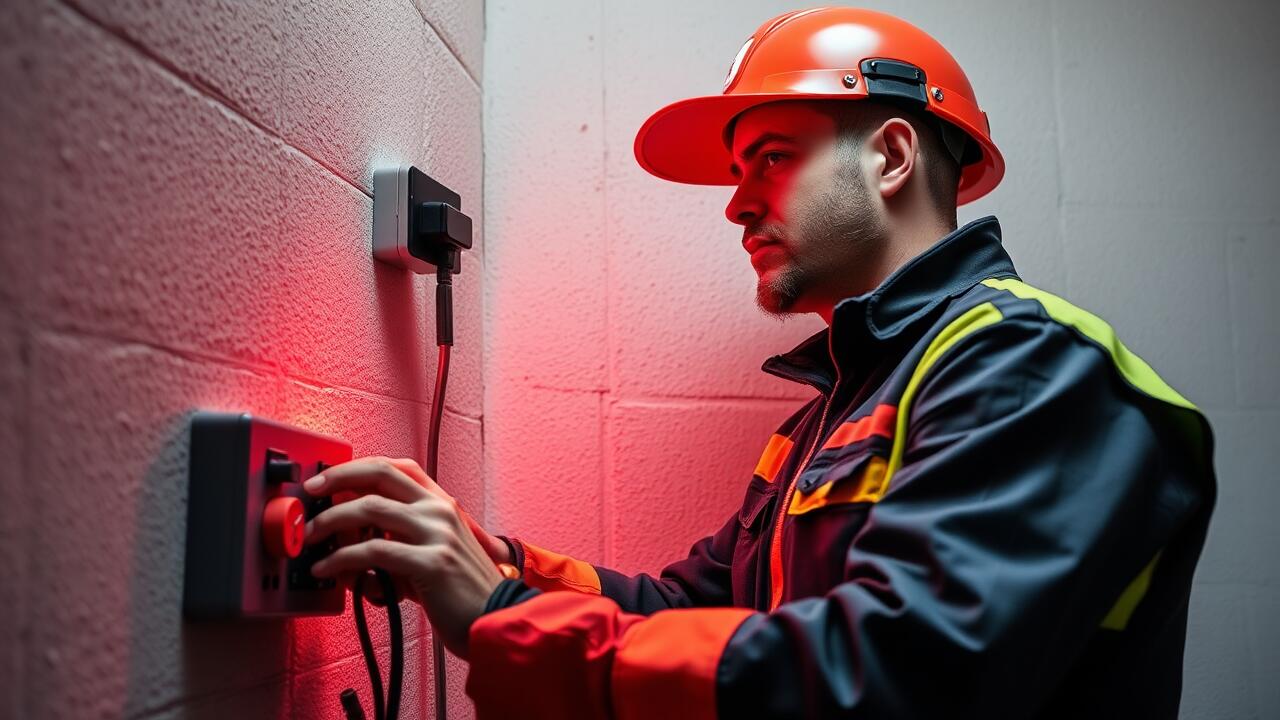
Using Fire Extinguishers for Electrical Fires
When facing an electrical fire, it is crucial to know the right fire extinguisher to use. Only extinguishers labeled as Class C are suitable for electrical fires, which involve live wires and energized equipment. Using water or inappropriate agents can lead to severe consequences, such as spreading flames or electrocution. Always ensure that the extinguisher is easily accessible and inspected regularly, as this readiness can make a significant difference in an emergency situation.
In addition to being equipped with the right fire extinguisher, having a plan for emergencies is essential. If an electrical fire occurs and is not manageable with a Class C extinguisher, evacuating the area should be the top priority. Seeking professional help is vital, especially from an Emergency Electrician in West University Place, Houston. Their expertise can not only address the immediate danger but also help prevent future incidents through thorough inspections and safety recommendations.
Types of Extinguishers and Their Uses
Different types of fire extinguishers are designed for specific fire classes, which determine their effectiveness. For electrical fires, a Class C extinguisher is essential. This type of extinguisher uses non-conductive agents to suppress flames safely without risking electric shock. Common options include carbon dioxide (CO2) extinguishers or dry chemical extinguishers that contain agents like monoammonium phosphate. It's important to check the label before using any extinguisher on an electrical fire to ensure it is rated for Class C.
In addition to having the right extinguisher on hand, knowing how to use it correctly can prevent further hazards. Aim the nozzle at the base of the fire, and use a sweeping motion while maintaining a safe distance. Regular maintenance and checks of your extinguishers are also vital for ensuring their readiness. In case of an electrical issue leading to a fire, contacting an Emergency Electrician in West University Place, Houston, should be a priority. They can help address any underlying electrical problems that could pose further risks.
Importance of Smoke Alarms
Smoke alarms play a critical role in enhancing safety within homes and commercial spaces. They serve as an early warning system, detecting smoke and indicating potential fire hazards before they escalate. Regularly functioning smoke alarms can provide invaluable time for occupants to evacuate safely and alert emergency services. Neglecting these devices includes potentially catastrophic consequences, especially in areas where electrical appliances are frequently used.
Testing and maintaining smoke alarms should be a standard practice in every household. Ensure that alarms are installed in key locations, such as bedrooms and hallways, and that they are replaced every ten years. For households reliant on electrical systems, the services of an Emergency Electrician in West University Place, Houston, can be beneficial. This ensures that smoke alarms are correctly installed and that the electrical system is kept in optimal condition, reducing the risk of fires.
How to Ensure Proper Functioning
Regular testing and maintenance of smoke alarms are essential for their effectiveness. Homeowners should verify that the alarms are operational by pressing the test button at least once a month. If the alarm makes a sound, it indicates proper functioning. It’s also important to replace the batteries at least once a year. Some units may be equipped with sealed batteries, which require less maintenance but still need replacing every ten years along with the entire smoke alarm unit.
In addition to routine checks, smoke alarms should be placed strategically throughout the home, particularly near sleeping areas. If residents notice any issues such as persistent chirping or a lack of sound when tested, they should address these immediately. Consulting a professional, like an Emergency Electrician in West University Place, Houston, can provide valuable insight and assistance in ensuring that the smoke alarms are not only functional but also installed in optimal locations for safety.
The Role of Professional Inspections
Regular professional inspections are crucial in maintaining electrical systems' safety and efficiency. These inspections can identify potential hazards, ensuring that wiring, outlets, and circuit breakers are up to code. Catching problems early minimizes the risk of electrical fires. Trained technicians have the expertise to spot issues that an untrained eye might overlook. Their assessments provide peace of mind to homeowners and business operators alike.
Scheduling routine inspections can prevent future emergencies. Home and business owners should seek an Emergency Electrician in West University Place, Houston, especially if there are noticeable signs of electrical issues. Flickering lights, tripped circuit breakers, and unusual odors often signal underlying problems that require immediate attention. Engaging a qualified electrician ensures that the system operates safely and effectively, reducing the likelihood of fire hazards.
When to Schedule an Electrical Safety Check
Regular inspections of electrical systems play a crucial role in maintaining safety and preventing potential fire hazards. Homeowners should schedule an electrical safety check at least once every few years or whenever they notice any signs of electrical issues, such as flickering lights, frequent circuit breaker trips, or unusual odors. If the home is older or has undergone significant renovations, a thorough inspection becomes even more essential. Keeping a consistent schedule helps identify problems early before they escalate into dangerous situations.
In addition to routine checks, specific life events can warrant an immediate electrical safety inspection. For instance, after experiencing severe weather events like storms, flooding, or high winds, it is wise to assess the electrical system for damage. If any new appliances are added to the home, consulting an Emergency Electrician in West University Place, Houston, can ensure the existing wiring can handle the increased load. Proactive measures can significantly reduce fire risks and ensure the safety of the household.
FAQS
What type of fire extinguisher should I use for electrical fires?
You should use a Class C fire extinguisher, which is specifically designed for electrical fires. These extinguishers can safely put out fires caused by electrical equipment without conducting electricity.
How can I ensure my smoke alarms are functioning properly?
To ensure your smoke alarms are functioning properly, test them monthly by pressing the test button. Replace the batteries at least once a year, and replace the entire unit every 10 years or if it fails to respond when tested.
Why are professional inspections important for electrical safety?
Professional inspections are important because they can identify potential hazards, ensure that your electrical system is up to code, and provide recommendations for maintenance or upgrades to prevent electrical fires.
How often should I schedule an electrical safety check?
It is recommended to schedule an electrical safety check at least once every three to five years, or more frequently if you notice any signs of electrical issues, such as flickering lights or tripped circuits.
What should I do if I have an electrical fire?
If you have an electrical fire, immediately turn off the power to the affected area if it is safe to do so. Use a Class C fire extinguisher to put out the fire if it is small; otherwise, evacuate the premises and call 911 for emergency assistance.
